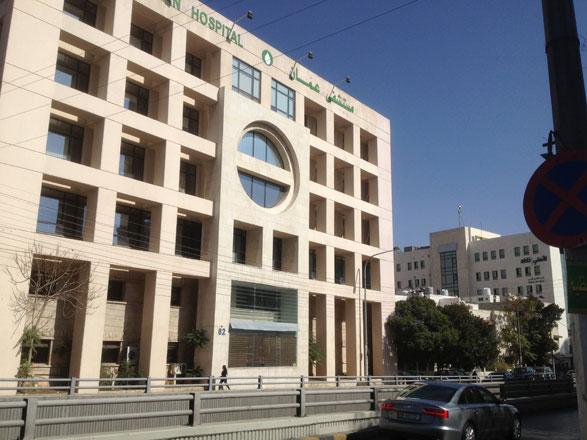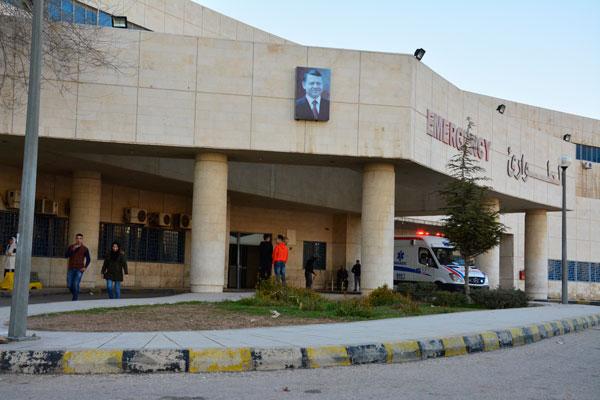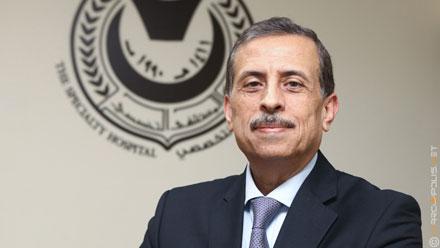You are here
Private hospitals hope for swift action to boost medical tourism
By Sawsan Tabazah - Aug 08,2016 - Last updated at Aug 08,2016

The Private Hospitals Association says the medical tourism sector requires more support to continue growing (JT photo)
AMMAN — The Private Hospitals Association (PHA) on Monday said that it hoped measures to boost medical tourism would be implemented soon, after the Cabinet approved recommendations to remove obstacles to the sector.
The Cabinet on Sunday approved the recommendations of a committee, headed by the health minister, which had studied challenges facing the medical tourism sector.
PHA President Fawzi Hammouri said the association had presented the main obstacles to medical tourism to Prime Minister Hani Mulki.
“Our main obstacle is the restriction applied to medical visas for people from Libya, Sudan, Syria, Yemen, Chad and Nigeria, which reduced patient numbers by 70 to 80 per cent,” said Hammouri.
On Monday, the Interior Ministry said all applications for medical visas would be processed within 48 hours, especially for citizens of Yemen, Sudan and Libya, a ministry statement said.
Interior Minister Salameh Hammad said that Sudanese citizens should attach a letter from the Sudanese government confirming that the visa applicant needs medical treatment, the statement added.
Hammouri responded that it was difficult for Sudanese patients to secure medical visas for Jordan, adding that the process sometimes takes between two and four weeks.
He questioned the requirement for a government letter of support, noting that the Sudanese government does not pay the expenses of medical tourists.
Sudanese patients will seek medical treatment in the UAE, Turkey or India instead, Hammouri warned.
Hammad noted that terror groups have taken over civil status offices in some unrest-ridden countries, which calls for taking security precautions when processing visa applications.
Moreover, some use the purpose of medical treatment as a pretext to enter the Kingdom, according to the minister.
The recommendations approved by the Cabinet included improving the investment environment, allowing hospitals to hire guest workers in 10 per cent of the nursing positions in certain specialisations and seeking the approval of the Greater Amman Municipality (GAM) to allow hospitals to expand to more than eight floors.
Hammouri noted that GAM has allowed hotels to build 30 or 40 floors, but has restricted hospitals to five floors. “A hospital recruits three times the number of employees of a hotel,” Hammouri said.
The Cabinet also accepted the committee’s recommendations that funds should be allocated to promote medical tourism, in line with other tourist sectors, and a specialised unit should be established at the Jordan Tourism Board.
The PHA president said the association had used its own finances to market Jordanian hospitals at exhibitions, and urged the government to take over funding, noting that the Turkish government paid for around 60 per cent of promotional expenses for Turkish medical tourism.
The medical sector receives around 35 to 40 per cent of the benefits from medical tourism, he said, adding that the benefits to other sectors reach 60 per cent.
The committee also recommended making local or international accreditation mandatory for health institutions.
“We have 107 hospitals but only 17 hospitals are accredited in Jordan,” said Hammouri, noting that accreditation requires 700 standards to be met, some of which are administrative while others relate to nursing, and food and patient safety.
A recommendation to allow hospitals to generate electricity from alternative energy to reduce costs was also approved by the Cabinet.
“We requested this permission three years ago,” Hammouri said.
Hospitals pay 27 piasters per kilowatt of electricity, while hotels pay 7 piasters, he noted.
“We want to be treated equally, like hotels or commercial sectors,” the PHA official added.
Other recommendations approved by the Cabinet include the amendment of regulations and laws, such as the medical responsibility to protect the rights of patients, doctors and hospitals, as well as intensifying oversight at hospitals and creating a hotline for complaints.
Related Articles
AMMAN — The Global Healthcare Travel Forum (GHTF) has endorsed the "Amman Declaration" that seeks to expand the scope of medical tourism sec
AMMAN — The Private Hospitals Association (PHA) on Thursday commended the government's recent measures to facilitate the entry of Yemenis an
AMMAN — The number of foreign patients visiting Jordan for treatment has dropped by 40 per cent during 2016 and 2017, according to a sector


















